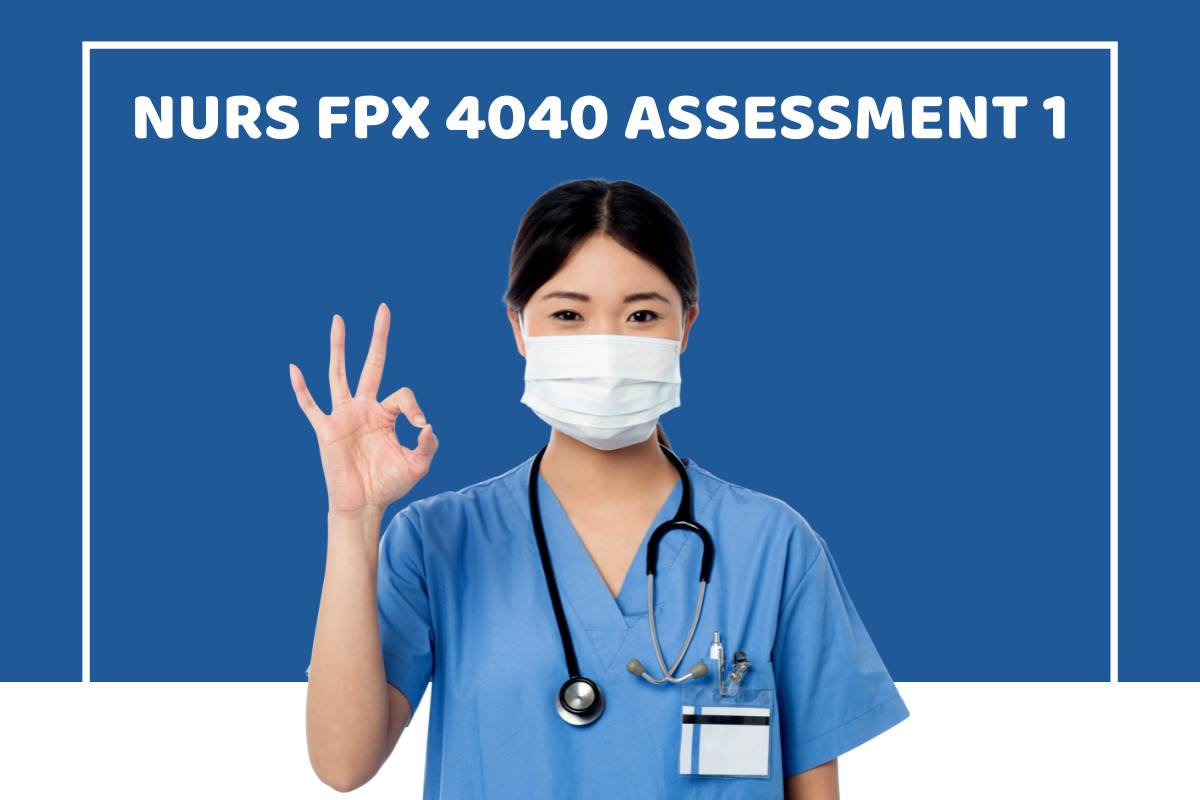In the realm of healthcare, nursing stands as an indispensable profession that not only demands medical expertise but also ethical integrity. Nurses often encounter complex situations where ethical decisions play a pivotal role in patient care. The course Nurs FPX 4040 Assessment 1 aims to delve into the ethical dilemmas prevalent in contemporary nursing practice, exploring the multifaceted challenges nurses face within healthcare settings. This article will analyze various ethical dilemmas encountered by nurses, discussing their impact on patient care, ethical principles guiding decision-making, and strategies for resolving these dilemmas effectively.
Understanding Ethical Dilemmas in Nursing
Nursing, being a profession deeply rooted in caring for individuals, families, and communities, frequently confronts ethical predicaments. These dilemmas arise when nurses encounter conflicting moral principles or values, making it challenging to determine the most appropriate course of action. The Nurs FPX 4040 Assessment 1 emphasizes the critical examination of such ethical challenges.
Examples of Ethical Dilemmas in Nursing
Patient Autonomy vs. Beneficence: Nurses often grapple with the balance between respecting patients’ autonomy and acting in their best interests. For instance, a competent patient refusing life-saving treatment presents a profound ethical quandary, where respecting the patient’s autonomy clashes with the healthcare provider’s duty to promote beneficence.
Confidentiality vs. Duty to Warn: Protecting patient confidentiality is crucial, but it can conflict with the obligation to warn potential harm to others. A nurse might face a dilemma when a patient discloses information that could endanger others, testing the boundaries of confidentiality and duty to protect.
Resource Allocation: In resource-constrained environments, nurses may encounter dilemmas related to fair allocation of limited resources. Deciding which patient receives scarce resources like ICU beds or medications challenges the principles of justice and fairness.
Impact of Ethical Dilemmas on Patient Care
Ethical dilemmas in nursing have a profound impact on patient care and outcomes. The Nurs FPX 4040 Assessment 1 focuses on understanding how these dilemmas influence the quality of care provided.
Psychological Effects on Nurses
Constantly encountering ethical dilemmas can take a toll on nurses’ psychological well-being. Making challenging decisions while navigating conflicting ethical principles may lead to moral distress, burnout, or compassion fatigue among nurses, affecting their ability to provide optimal care.
Patient Trust and Relationship
How nurses handle ethical dilemmas significantly impacts patient trust and the nurse-patient relationship. Resolving ethical conflicts in a transparent, compassionate, and respectful manner can strengthen this bond, fostering better patient outcomes.
Healthcare System Implications
Ethical dilemmas not only affect individual patients but also impact the healthcare system at large. Failure to address these dilemmas appropriately can lead to legal issues, compromised quality of care, and strained inter-professional relationships.
Ethical Principles Guiding Decision-Making
Nursing ethics are guided by fundamental principles that aid in navigating complex situations. The Nurs FPX 4040 Assessment 1 delves into these principles and their application in real-world scenarios.
Principle of Autonomy
Respecting patients’ autonomy involves recognizing their right to make informed decisions about their care, even if those decisions might not align with the nurse’s beliefs or recommendations.
Principle of Beneficence and Non-Maleficence
Nurses are committed to promoting good (beneficence) while avoiding harm (non-maleficence). Balancing these principles involves considering the potential benefits and risks of actions or interventions.
Principle of Justice
Fairness and justice in healthcare demand equitable treatment for all patients, regardless of socio-economic status, ethnicity, or other factors. Nurses grapple with upholding justice when faced with resource allocation dilemmas.
Strategies for Resolving Ethical Dilemmas
Addressing ethical dilemmas in nursing requires a systematic approach and critical thinking. The Nurs FPX 4040 Assessment 1 explores various strategies that nurses can employ to navigate these challenging situations.
Ethical Decision-Making Frameworks
Utilizing established frameworks like the “Four Principles Approach” or “Ethical Decision-Making Models” provides a structured process for assessing dilemmas, considering ethical principles, and arriving at well-justified decisions.
Interprofessional Collaboration
Collaborating with other healthcare professionals, ethicists, and interdisciplinary teams can offer diverse perspectives, facilitating comprehensive ethical analysis and decision-making.
Continuing Education and Training
Continuous learning and training on ethics equip nurses with the knowledge and skills needed to handle complex ethical dilemmas effectively. Institutions offering Nurs FPX 4000 Assessment 2 prioritize such education to enhance nurses’ ethical competency.
Conclusion
Nursing practice in contemporary healthcare settings is rife with ethical challenges that demand meticulous consideration and ethical discernment. The Nurs FPX 4040 Assessment 1 aims to equip nursing professionals with the tools necessary to navigate these dilemmas, ensuring that patient care remains ethical, compassionate, and of the highest quality. By understanding, analyzing, and employing ethical principles, nurses can uphold their commitment to providing patient-centered care while addressing the complexities inherent in modern healthcare.
In conclusion, ethical dilemmas in nursing, as explored in the Nurs FPX 4040 Assessment 1, serve as a reminder of the profound responsibilities and ethical obligations that nurses bear in their practice, reaffirming the indispensable role they play in the healthcare ecosystem.

